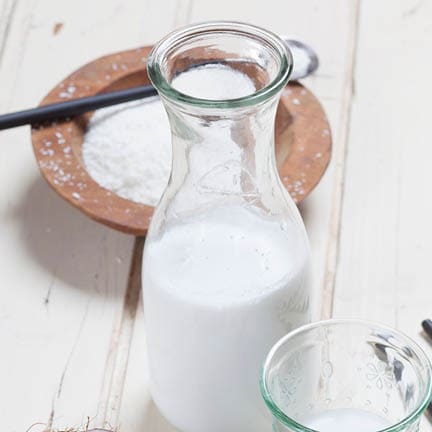- Beans & Roasters
- Sydney Coffee Lounge
The best coffee experience starts here
- Education
The best coffee experience starts here
- Magazine
- Recipes
- About us
The best coffee experience starts here
The best coffee experience starts here

Trends & Lifestyle
We’re spoilt for choice today – and no more so than when it comes to coffee. With a dizzying array of coffee styles already on offer, we now have a multitude of alternatives to cow’s milk to choose from. But do non-dairy alternatives make a perfectly rich, satisfying coffee? How can you make sure that your non-dairy coffee is as delicious as the dairy milk variety? If you’re keen to enjoy your daily latte or flat white – but not keen to drink cow’s milk – we’ve put together a handy guide to the best non-dairy milk for your coffee.
Full-cream lovers
If you love your full-cream, milky coffee, it stands to reason you need a richer, creamier non-dairy milk. With this in mind, soy, cashew or coconut milk are going to be your best bets.
Soy milk
Soy milk is nutritionally like dairy milk, being high in protein and carbohydrates. There’s some debate about whether soy milk is healthy or not since high quantities of soy milk deliver phytonutrients that may mimic some hormones. Regardless of your view on soy milk’s health properties, it goes extremely well with coffee, adding a delightful nutty flavour and blending well, with a creamy mouth feel. Purists may not like the relatively strong aftertaste.
Cashew milk
Cashew milk is high in minerals and healthy fats, making your coffee rich, thick and creamy. Cashew milk is going to be hard to find at your local coffee shop, but it’s relatively easy to make your own cashew milk at home. It blends well with coffee and has a milder aftertaste than soy milk.
Coconut milk
Rich, thick and creamy, coconut milk is high in healthy saturated fats and has a texture like cream or full-fat milk. Coconut milk also blends well, without splitting or curdling in the cup. For these reasons, coconut milk is gaining in popularity as the perfect complement to coffee.
Skimmed milk lovers
If your regular order is a skinny cappuccino or a long black with a dash of hot milk, you might want to choose a lighter kind of non-dairy milk. If so, you should consider almond or rice milk.
Almond milk
Almond milk is increasingly popular, thanks to its health benefits and nutty flavour. It’s around 50% fewer calories than cow’s milk and as a result, its popularity is growing and you’re more likely to be able to find it at your local supermarket. Be aware that almond milk isn’t as rich in protein or as high in the good fats found in ‘unsqueezed’ almonds. You may also find that some almond milks contain added sweeteners, which ends up defeating the purpose of it being low in calories.
Unfortunately, almond milk is harder for your barista to work with, often splitting from the coffee which means you may find a layer of foamy milk at the top and a layer of watery coffee at the bottom. Cross your fingers that your local barista has mastered the art of steaming almond milk without splitting it!
Rice milk
Rice milk is low in protein, which means that you’re never going to get a decent foam on your cappuccino. On the plus side, it doesn’t have a strong taste to interfere with the delicate flavour of your boutique coffee blend. Rice milk is also very low in fat, making it ideal for the health-conscious coffee lover.
What does the future look like for non-dairy coffee?
As our milk preferences evolve, baristas have a challenge on their hands, as they learn to grapple with new milk varieties and how they interact with coffee. The acidity and high temperature of espresso cause it to act as a coagulant, making many non-dairy milks split in the cup. Nevertheless, discerning coffee lovers expect to get a great coffee, whatever kind of milk it’s served on.
Some innovative companies are working with baristas, roasters and coffee technologists to create a new generation of non-dairy milks that blend beautifully with coffee. Perhaps it’s only natural that we should see this kind of innovation coming.


Testo vario
Join us
Policies
Support

